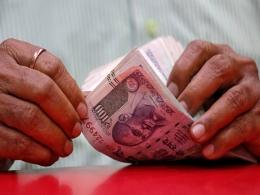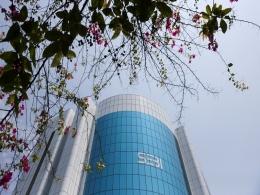The Indian market regulator's proposed measures to curb the trading frenzy in options will impact high-frequency traders and quant funds as well as brokerage firms that have gained from increased retail investor interest in the segment, traders said.
On Tuesday, the Securities and Exchange Board of India (SEBI) proposed raising the minimum trading amount for index options by more than three times, reducing the number of contracts expiring each week and hiking margins.
The regulator also suggested bringing down the range of prices at which option owners can buy or sell the underlying stock, called strikes.
Hedging vs Volumes
For high-frequency traders and quant funds, which trade in futures and options, these measures will limit their ability to hedge, according to Rishi Kohli, chief investment officer for hedge fund strategies at asset management firm InCred.
These entities "need some of these products for cheaper hedging. With reduced expiries, the advantage of the cheaper hedge will reduce," he told Reuters on Wednesday.
A lobby body for India's quant funds will send a representation to the regulator to review some of its proposals, said two hedge fund managers who declined to be named.
Stock exchanges and retail-focussed brokerages will also take a hit to their volumes, according to brokerage Jefferies.
Investec expects a 30% drop in the number of derivative orders per client for Angel One and sees the brokerage raising prices to 25 rupees per order from 20 rupees.
Earlier in the day, shares of SMC Global Securities, Geojit Financial, and IIFL Securities fell between 1% and 5%.
More activity
Larger non-individual players such as high-frequency algorithm-based traders and foreign investors in general made profits while individual investors incurred losses, SEBI said in a discussion paper uploaded on its website on Tuesday.
The options segment has been experiencing more activity as India's two leading exchanges offer multiple options contracts each week, leading to such contracts expiring nearly every day of the week.
The notional value of index options traded more than doubled in 2023-24 to $907.09 trillion from $447.69 trillion a year ago, according to regulatory data.
Over 9 million individuals and firms dabbled in index derivatives in fiscal 2024, incurring a loss of 516.89 billion rupees ($6.18 billion), the SEBI paper added.
Limited impact
India's largest discount brokerage Zerodha, however, is not likely to record a large impact on options trading volumes, its CEO Nithin Kamath said on social media platform X, as these changes would "incentivise futures traders to move to options" due to caps on leverages in futures.
Also likely to offset the impact is exchange operator BSE, according to Jefferies. The exchange may "even gain if volumes spill over from discontinued products to those which are continued," Jefferies said.
BSE closed 6% higher on Wednesday.







